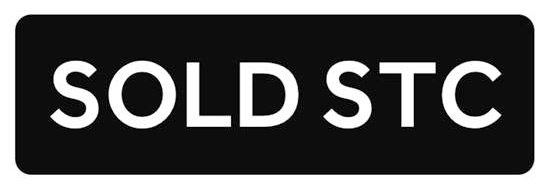What Does Sold STC Mean in Property? A Useful Guide
Posted on: 22/06/2021To begin, let’s get a basic definition of “Sold STC”: Sold STC (subject to contract) essentially means an offer has been made on a property which has been agreed by a vendor, but that purchase is not yet legally binding. If something is sold STC, it means the main points such as price have been made between the two parties but the sale is still subject to change.
They’re used more as placeholders while all the legal paperwork is still being arranged. This means the house is still on the market, and you as a prospective buyer, are too. If you spot a house that you fall head over heels for but its sold STC, don’t worry, as you may still have a chance of snatching up for yourself.
But to explain why and how, let’s delve a little deeper into the topic of sold STC houses...
- How does Sold STC differ from Under Offer?
- Buyers: What Does SSTC Mean?
- Sellers: What Does SSTC Mean?
- What is the next stage after SSTC?
- Can a SSTC deal not proceed to completion?
1. How does Sold STC differ from Under Offer?
Under offer is the stage before a property is sold subject to contract where, typically, the seller and buyer are still negotiating terms (details like the final price, what will be included for that price, extra work being done etc). Sold STC is where the terms have been agreed, primarily the price to be paid.
The biggest take away is though, that neither under offer houses or sold STC houses are actually legally bound to a purchase yet.
2.Buyers: What Does SSTC Mean?
From a buyer’s perspective, Sold STC means that they've had an offer accepted by the seller of the property they wish to buy which is great news. But what’s your next move as a buyer? Well, you should try and push the estate agent to mark the property as sold STC as soon as possible; if at all possible, preferably on the same day that your offer is accepted. You should pressure them to do the same on any market site’s the property is posted on, e.g., Zillow, Rightmove. You should ask them to take it off the market and stop any further viewings. This way, others are less likely to find the property and snatch it from you.
3.Sellers: What Does SSTC Mean?
Sold STC means that you've accepted an offer from a buyer and the property is to be taken off the market for further viewings. You may want to ensure you do this only after your estate agent has received proof of funds from the buyers. This is just in the case your buyer turns out not to have the funds they originally said,, then you won’t lose other interested buyers that thought your property was now off the market.
4.What is the next stage after SSTC?
The legal conveyance with the solicitors for both parties commences after SSTC. All of the finer details and requests of the deal are defined and agreed upon, and contracts between the buyer and seller are agreed. Before exchange, the transaction can fall through at any time and frequently does. After exchange, both parties are contractually obliged to make the purchase. Backing out now will cost both parties and can even lead to legal trouble, so do not exchange unless you are absolutely certain you want to go through with it.
5.Can a SSTC deal not proceed to completion?
Absolutely they can, that’s one of the riskier sides of SSTC. Whether you’re a buyer or a seller, a collapsed deal can have a negative impact on your property buying/selling experience. Not only can it draw out the process (as a buyer or seller), but it can also see you forced to accept a lower offer next time round (as a seller).
So how do you avoid a deal from falling through. Well, there are a couple ways to prevent the issue from occurring.
- Prevent Gazundering and Gazumping - The easiest way to avoid gazumping and gazundering is being efficient. Once your sale's been set up, both aprties should be ready to go appoint fast solicitors. The quicker the sale, the less likely there’ll be any issues.
- Don't try and hide issues with the property- Be transparent about any structural problems with the property. If you're a buyer, then it’s your responsibility to ask the right questions. It could take quite a while for the surveto to get done and reveal issues which may kill the deal much later than it might have done.
- Go for an off-market sale - If you're a seller, you can easily get around all of these potential obstacles by not using estate agents. While there are a few reliable buyers on the plain open market, not every buyer can hold this title. A large majority can be overly picky and also unreliable, especially when it comes financial dealings. Whereas quick property buying companies tend to be far less picky. Ultimately, it’s up to you.
We hope you found this article useful.
Feel free to contact us here at Quick Property Buyer if you would like to sell your property fast, sometimes in as little as 7 days.
UK property buyers for cash. Company Number: 12669628




